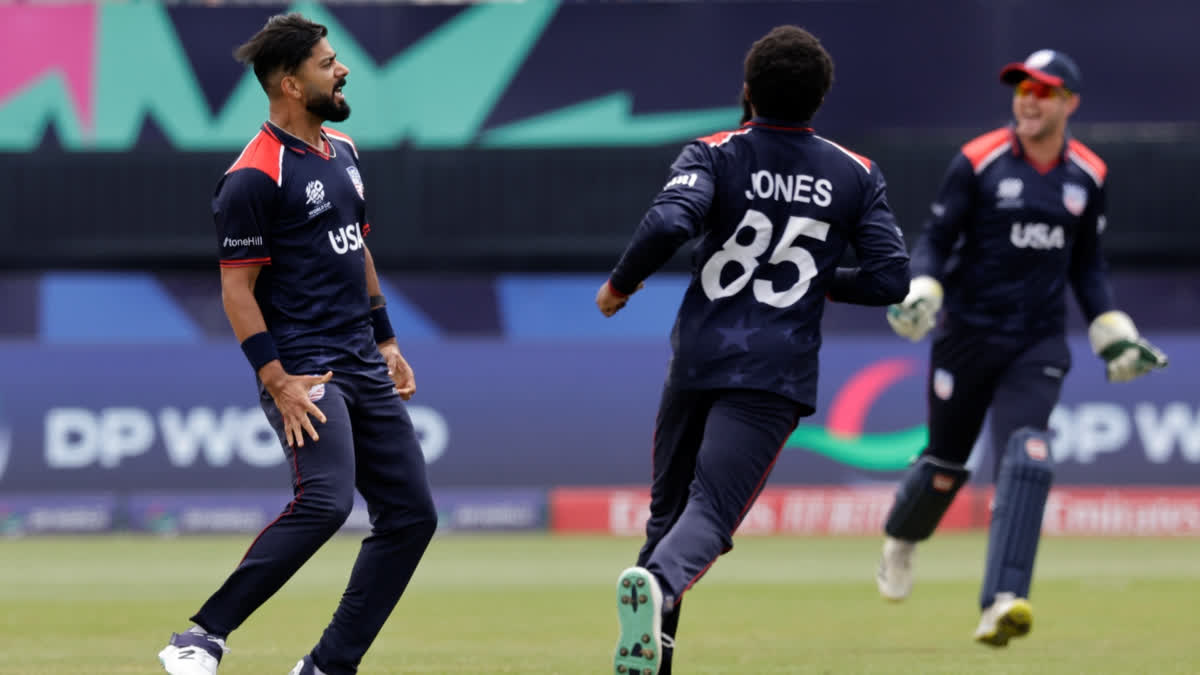Hyderabad: The game between India and the USA on Wednesday at the Nassau County International Cricket Stadium turned out to be a historic one. It was an occasion not because India marched into Super Eights or Virat Kohli scored a golden duck, but the USA became the first team ever to be hit by the Stop Clock rule was the reason behind it. The game between the two teams was going down to the wire, but an error in time management from the hosts costs them five runs and the momentum slipped out of their hands thereafter.
Arshdeep Singh was the star of the show for the Indian side, taking four wickets and playing a crucial role in restricting the opposition to 110/8. Suryakumar Yadav played a gritty knock for India and helped them register a seven-wicket win with a half-century.
- What transpired in the IND vs USA match?
The incident occurred at a crucial juncture in the game with both teams having an equal chance to win. India was poised at 76/3 before the start of the 16th over with the team needing 35 runs from the last five overs. Before Jasdeep Singh could start his over, the on-field umpire called USA skipper Aaron Jones to tell him that the team had been handed a five-run penalty.
The repercussion came under the Stop Clock rule, which ICC experimented with ahead of the ongoing World Cup. The rule has played a crucial role in restricting teams from wasting time in international cricket.
- What is the Stop Clock rule?
The idea behind the Stop Clock rule is to ensure that a match gets over within a certain time limit and restrict time wastage. According to a statement by ICC, the rule states that the fielding side is allowed 60 seconds to start the next over.
“Following the completion of an over, the fielding team will be given 60 seconds to start the next over. An electronic clock will be present at venues to keep track of the timing,” a statement from the ICC read.
- The Working of Stop Clock Rule
The Stop Clock Rule states that the fielding side must start the next over within 60 seconds and an electronic clock on the stadium will keep track of it.
In case of the fielding side missing out on the deadline, they will be issued two warnings first. However, they will penalised with five runs for every violation after that and so the batting team’s scorecard will get a boost of five runs each time the fielding team makes delay in starting overs.
ICC has also made it clear that five overs should be completed in group and Super Eight matches while for knockouts, a ten-over completion is a necessity.
- The first implementation of the rule
The rule was first approved by the Chief Executives’ Committee (CEC) last November in an organisational meeting in Gujarat’s Ahmedabad. The initial plan was to implement the Stop Clock rule on a trial basis from December 2023 to April 2024 and the decision around implementing it permanently would be taken afterwards.
- Rule made permanent
After taking trails of the Stop Clock rule, ICC finally decided that it would be a permanent feature in the international matches in March 2024. The trials yielded impressive results for cricket’s governing body so it was a mandatory playing condition from June 1. The World Cup game between the USA and Canada was the first occasion of the Stop Clock rule being implemented.
“Results presented to the Chief Executives’ Committee (CEC) demonstrated that approximately 20 minutes had been saved per ODI match. The feature has now been added as a mandatory playing condition in all Full Member ODI and T20I matches from 1 June 2024,” a release from ICC stated.
Exceptions to the rule
ICC has mentioned the exceptions to the rule.
“There are a few exceptions to this rule, and the clock, if already started, can be cancelled in certain situations. These include:
- When a new batter comes to the wicket between overs
- An official drinks interval has been called
- The umpires have approved the on field treatment of an injury to a batter or fielder
- The time lost is for any circumstances beyond the control of the fielding side,” they revealed.
Read More



